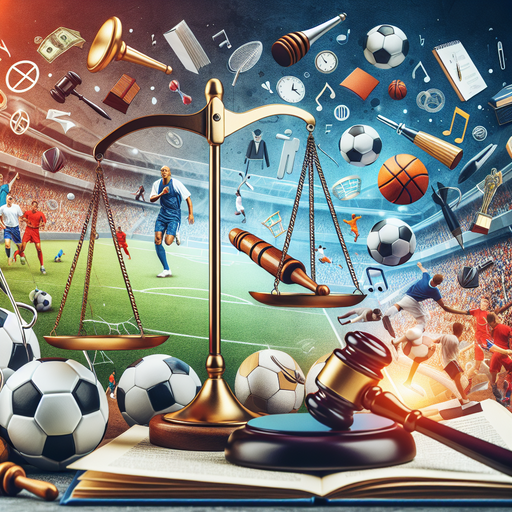What Is Sport Law

Introduction
In the dynamic world of sports, where passion meets performance, an intricate web of legalities governs the playing field. Sport law, a specialized area of law, plays a pivotal role in shaping the modern sporting landscape. From athletes' rights to intellectual property, sport law is the backbone that ensures fairness, integrity, and safety in sports. This blog post delves into the nuances of sport law, exploring its significance, key areas, and impact on the sports industry.
The Essence of Sport Law
Sport law encompasses a wide array of legal disciplines, including contract law, tort law, labor law, and intellectual property law, all applied within the context of sports. It addresses issues ranging from the contractual obligations of athletes and teams to the protection of intellectual property rights associated with sports brands and events. Sport law ensures that the rights and responsibilities of all stakeholders—athletes, coaches, teams, sponsors, and governing bodies—are clearly defined and upheld.
Key Areas of Sport Law
- Contractual Agreements: Contracts are the foundation of professional sports. Whether it's a player's contract, sponsorship deals, or broadcasting rights, sport law ensures these agreements are legally sound and enforceable. It also addresses breach of contract issues and disputes.
- Intellectual Property: The sports industry thrives on branding, making intellectual property protection crucial. Sport law safeguards logos, trademarks, and broadcast rights, ensuring that the commercial interests of sports entities are protected.
- Dispute Resolution: Disputes are inevitable in sports, ranging from doping allegations to contractual disagreements. Sport law provides mechanisms for arbitration and mediation, offering a fair and efficient resolution process.
- Anti-Doping Regulations: Sport law plays a crucial role in enforcing anti-doping regulations, maintaining the integrity and fairness of sports competitions worldwide. It involves the creation and enforcement of policies to prevent and penalize the use of performance-enhancing drugs.
- Labor and Employment Law: Athlete rights, working conditions, and collective bargaining agreements fall under this category. Sport law ensures fair labor practices, protecting the welfare of athletes and other sports professionals.
The Impact of Sport Law on the Industry
Sport law is instrumental in shaping the ethical and operational framework of the sports industry. By ensuring compliance with legal standards, it upholds the principles of fairness and competition. Sport law also plays a crucial role in fostering innovation and growth, as it provides the legal groundwork for new business models and technologies in sports.
Moreover, sport law contributes to the global appeal of sports by facilitating international collaborations and competitions. It creates a level playing field, allowing athletes from diverse backgrounds to compete fairly and safely.
Conclusion
In a realm where the stakes are high and the competition fierce, sport law serves as the guardian of integrity and justice. Its multifaceted nature addresses the diverse legal challenges faced by the sports industry, ensuring that the spirit of sportsmanship prevails. As sports continue to evolve and grow, the role of sport law will remain indispensable, safeguarding the interests of all those who contribute to the vibrant world of sports.